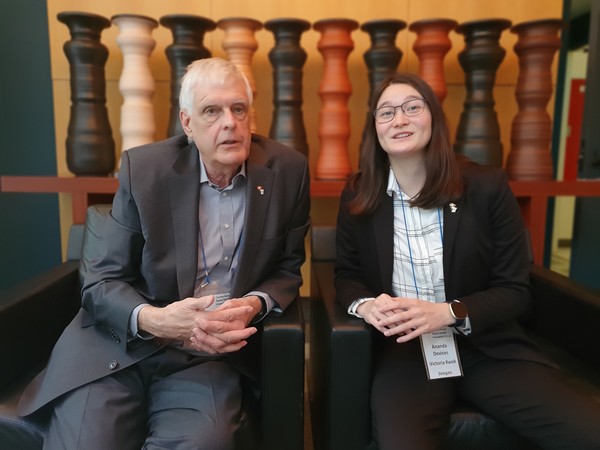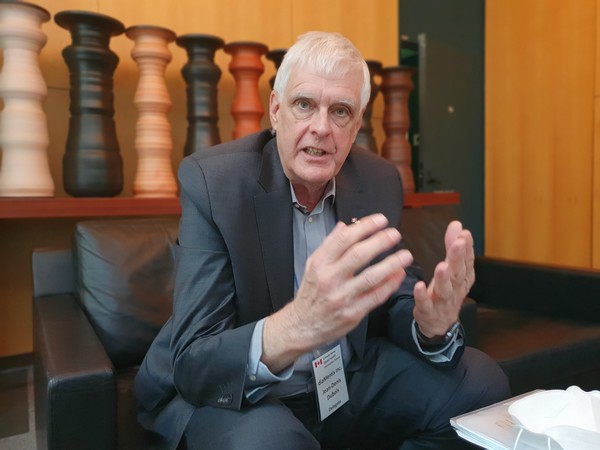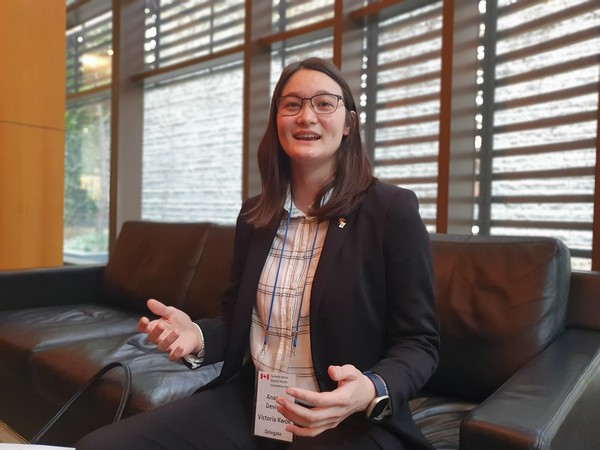Although biopharmaceutical firms commit considerable resources annually to treat neurological diseases, many still remain without a cure. This is precisely the gap that Canadian biotech, Ananda, is looking to fill by accelerating the development of therapies for neurological diseases. On a related note, mental health is another problem which is often neglected and struggles to diagnose patients objectively. However, Canadian company, diaMentis, has high hopes of changing this tale with their FDA Breakthrough technology.

Against this backdrop, Korea Biomedical Review sat down with Ananda Therapeutics Business Development Manager Victoria Kwok and diaMentis Vice President Jean-Denis Dubois to find out more about their digital health solutions and how they plan to find the right partners in Korea.
Platform applications
According to Kwok, Ananda develops nervous systems on a chip for neurological research and assays by culturing neurons in a highly organized manner as opposed to traditional cultures which she described as "disorganized spaghetti" with numerous overlaps, making it very difficult to tease out meaningful information.
By providing and developing specific physiologically relevant disease models, we are able to analyze, derisk and validate pharmaceuticals and neurodegenerative disease markers, she added.
"Our work aids pharmaceutical drug development. As neurotoxicity is the number one cause of drug failure along the pipeline, we also develop neurological models for drugs that don’t treat neurological diseases,” she explained.
Asked how her company differentiates from competitors, she said “organs-on-a-chip” was an emerging market but the company was dedicated to ensuring its technology was easily adoptable. The company added a microfluidic system beneath the commonly used 384 well plate, which are both compatible with standard microscope readers and pre-existing equipment of laboratories, Kwok said.
On the same note, diaMentis VP explained that they are a pioneer in the mental disease field.

Mental disease symptoms are all alike in the early stages so it is very hard for doctors to diagnose mental diseases at the beginning, Dubois said.
As the retina is the window to the functioning of the brain, diaMentis developed an objective diagnosis tool which stimulates the retina with light, records the electrical response signal of the retina with electroretinography (ERG) and analyzes it for biomarkers that can distinguish between different mental diseases like schizophrenia, depression and bipolar disease at any stage of the disease, he explained.
The analyzed data can also predict whether a child with schizophrenic parents will be at risk for this disease in five or ten years, he added.
“As we are the first to market this disruptive technology, there's no other competition in the world for us right now,” he stated confidently.
Psychiatry is the only medical specialty that still uses subjective questionnaires as diagnosis tools between the physician and the patient but diaMentis wants to deliver the first objective diagnostic tool for mental diseases, he added.
Why partner with Korea?
Regarding her reason for partnering with Korean companies, Kwok said Korea is at the forefront of innovation especially in the health sector and research which is very exciting for her company's emerging technology as their products require a certain level of expertise and scientific background.

“Furthermore, we are also interested in using our microfluidic engineering expertise to engage with clients that have expertise in different cell culturing models for joint work in developing and validating assays,” she went on to say.
In this regard, ideal partners would be pharmaceutical companies, different biotech companies and hospital researchers who are doing work on rare disease models, she said.
The company is already partnering with a Korean company within the biotech sector to develop a related cell culturing tool.
Meanwhile, diaMentis VP explained that his company was looking for partners globally but as Korea has a high mental disease burden and number of suicides, his company is eager to find partners in Korea. He elaborated, “As we are still undergoing clinical trials in Canada and the U.S., we are specifically looking for partners who can help us commercialize this technology and analyze the regulatory politics in South Korea.”
Priority projects and future plans
Elaborating on Ananda’s priority projects, Kwok said the company’s newest product of a modelled neuromuscular junction was in its launch phase.
“This is one of the very first functional neuromuscular junction chips on the market and our current focus is integrating it into our services and products alongside our already existing line of microfluidic devices,” she said. “We expect this to play an important role in developing disease treatments for both neurodegenerative and neuromuscular diseases without having to collect preliminary data from already suffering patients.”
Currently, diaMentis is focused on successfully completing clinical trials, refining its technology and developing a more specific electroretinography device for the company’s needs.
He added, “Due to our breakthrough designation, we also have fast track approval and four years exclusivity of sales in the United States, so we are maintaining close contact with FDA regulators to ensure everything progresses smoothly.”
Sharing about some of their future plans, Kwok remarked, “Right now, we want to validate many different results on our devices, commercialize them and expand our product platform to biopharmaceutical companies that deal with rare diseases.”
“Ultimately, we want to enable our devices for invitro diagnostics directly in hospitals where you could take a blood sample from a patient and quickly perform patient stratification to determine whether a drug might be effective or not.”
Dubois chimed in saying, diaMentis short-term goal is to finish the clinical trial and then begin commercialization for treating schizophrenia, bipolar and depression globally. Long-term, he expressed his wish to expand the platform for early diagnosis of other diseases like anxiety, Alzheimer’s, Parkinson and autism to begin treatment more rapidly.

